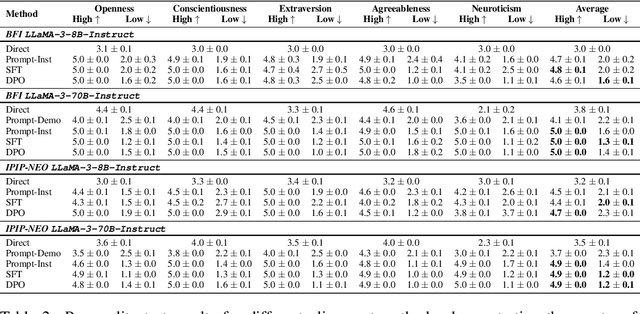BIG5-CHAT: Shaping LLM Personalities Through Training on Human-Grounded Data
Paper and Code
Oct 21, 2024



In this work, we tackle the challenge of embedding realistic human personality traits into LLMs. Previous approaches have primarily focused on prompt-based methods that describe the behavior associated with the desired personality traits, suffering from realism and validity issues. To address these limitations, we introduce BIG5-CHAT, a large-scale dataset containing 100,000 dialogues designed to ground models in how humans express their personality in text. Leveraging this dataset, we explore Supervised Fine-Tuning and Direct Preference Optimization as training-based methods to align LLMs more naturally with human personality patterns. Our methods outperform prompting on personality assessments such as BFI and IPIP-NEO, with trait correlations more closely matching human data. Furthermore, our experiments reveal that models trained to exhibit higher conscientiousness, higher agreeableness, lower extraversion, and lower neuroticism display better performance on reasoning tasks, aligning with psychological findings on how these traits impact human cognitive performance. To our knowledge, this work is the first comprehensive study to demonstrate how training-based methods can shape LLM personalities through learning from real human behaviors.
 Add to Chrome
Add to Chrome Add to Firefox
Add to Firefox Add to Edge
Add to Edge